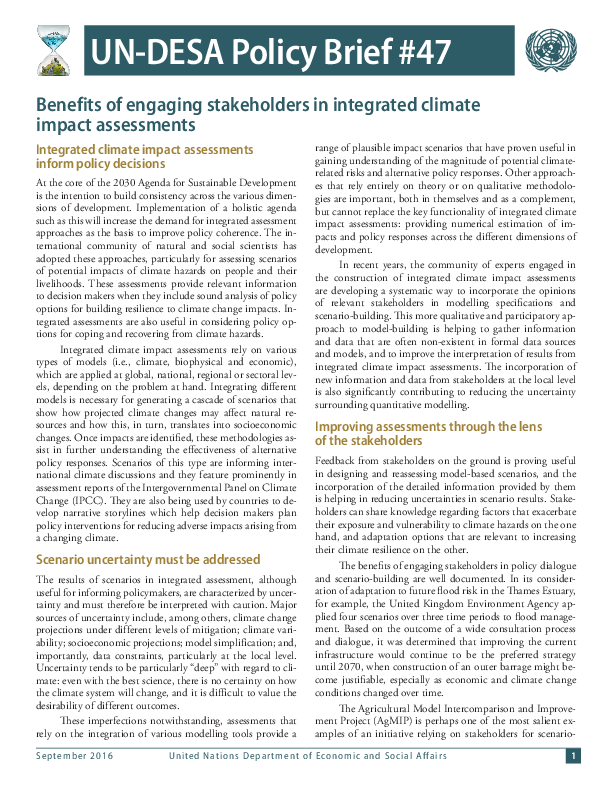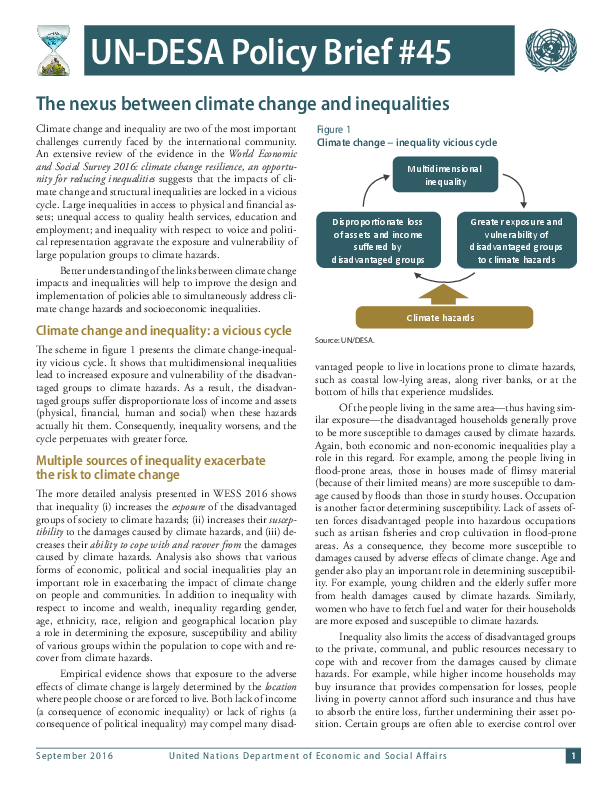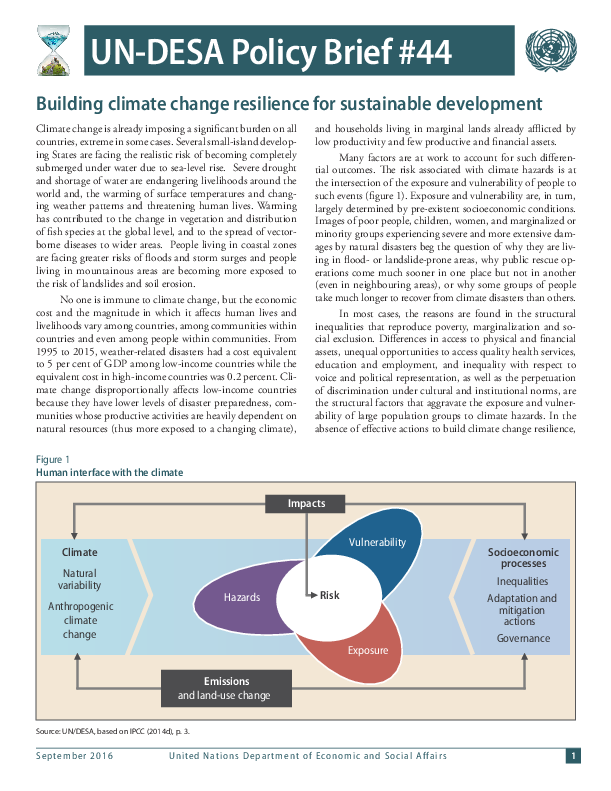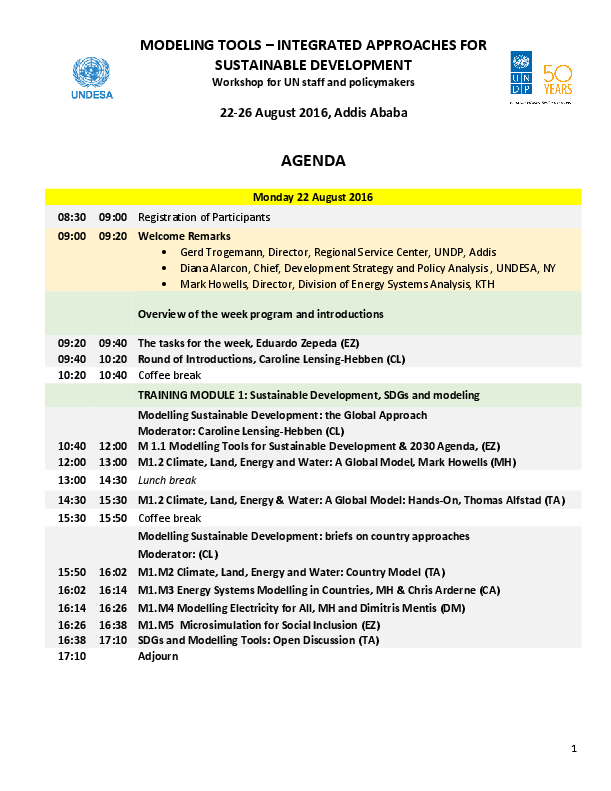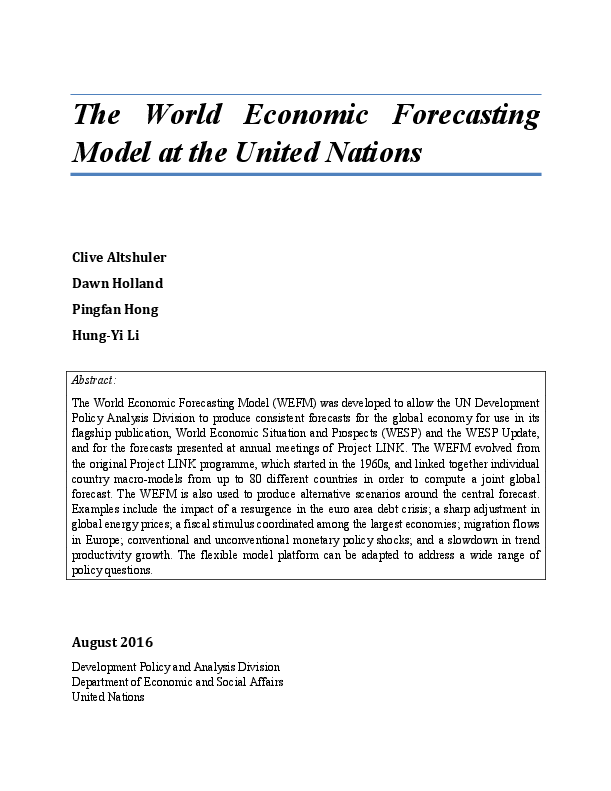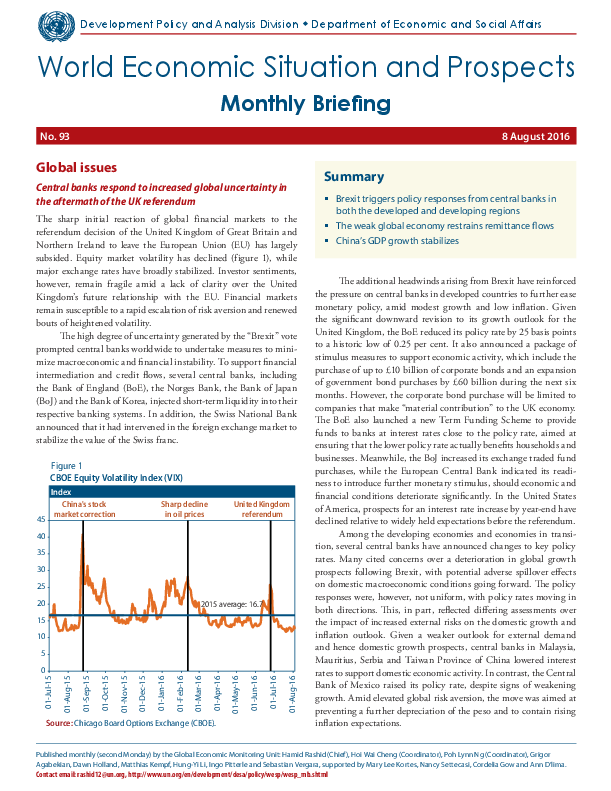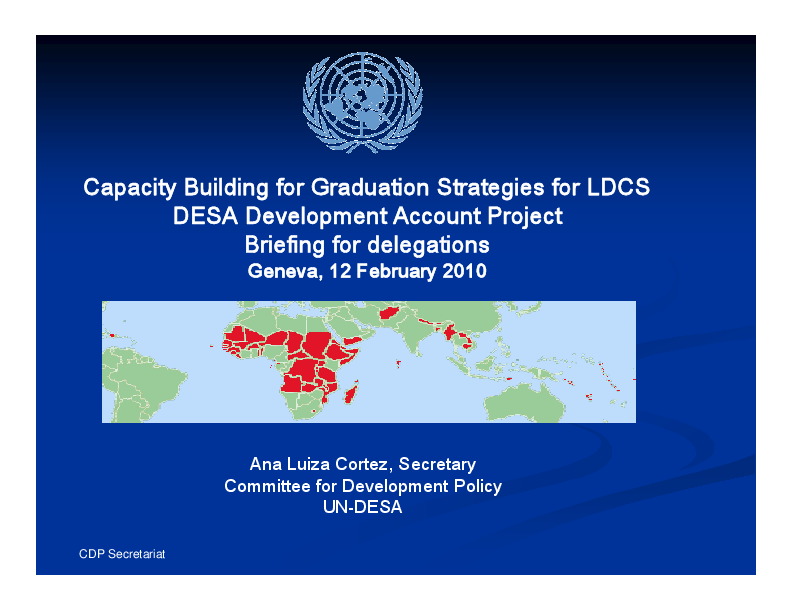Publications
Displaying 21 - 30 of 59
UN/DESA Policy Brief #47: Benefits of engaging stakeholders in integrated climate impact assessments
At the core of the 2030 Agenda for Sustainable Development is the intention to build consistency across the various dimensions of development. Implementation of a holistic agenda
The intensity and frequency of climate hazards have increased with climate change, imposing large costs on societies. Building resilience to withstand climate h
? The weak global economy restrains remittance flows
? China?s GDP growth stabilizes
?
 Welcome to the United Nations
Welcome to the United Nations
